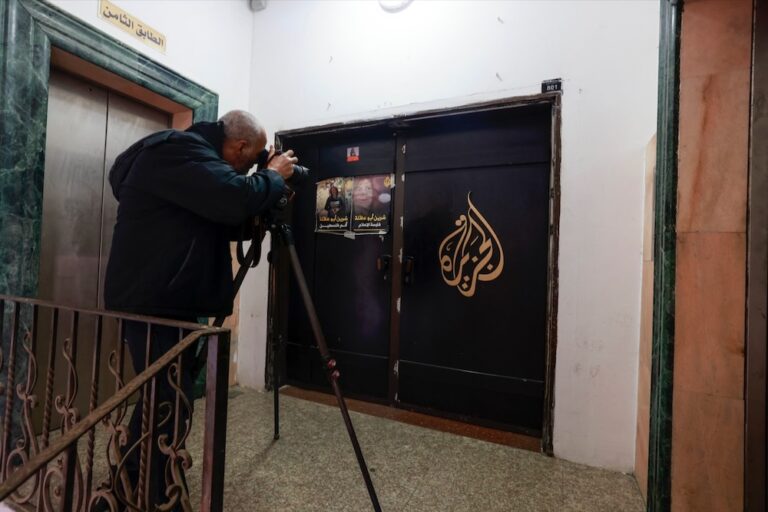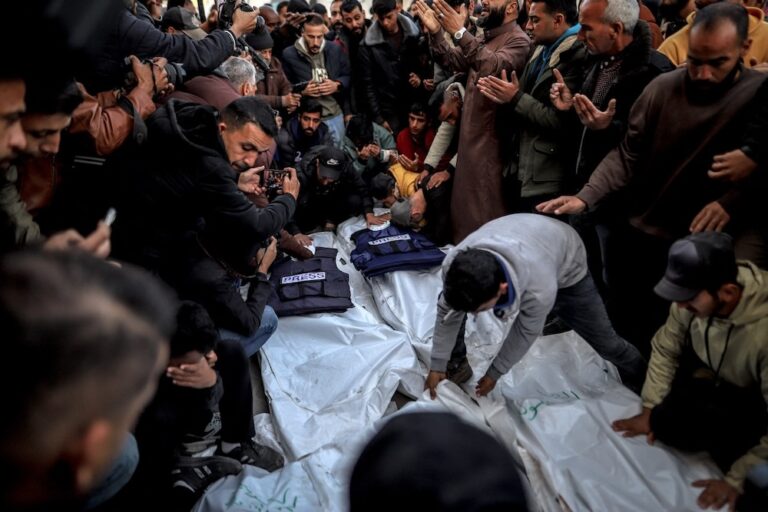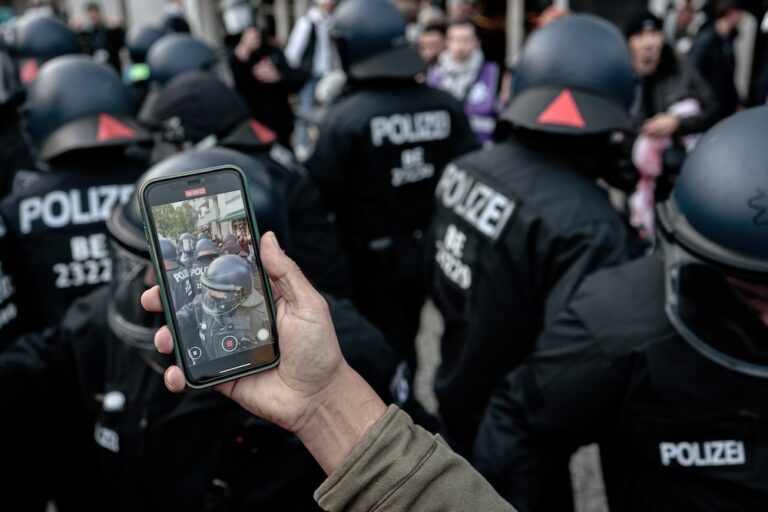In one recent incident, a correspondent from Sawt Al-Aqsa radio station was arrested by Palestinian Authority security forces at his home in Hebron.
(RSF/IFEX) – “The climate continues to be very oppressive for Palestinian journalists, who are still subject to arrests, physical attacks and searches as a result of tensions between the Fatah-led Palestinian Authority in the West Bank and Hamas in the Gaza Strip,” Reporters Without Borders said. “Political rivalry continues to take its toll on press freedom.”
In one of the latest incidents, Samer Rwayched, a correspondent of Sawt Al-Aqsa (a radio station linked to Hamas), was arrested by Palestinian Authority security forces at his home in the West Bank city of Hebron on 7 May 2010. Representatives of the radio station told Reporters Without Borders they did not know the official reason for his arrest or where he was currently being held.
Mohamed Ezzat Al-Halayka and Sami Asa’d, two journalists working for Hamas-linked websites, were arrested by Palestinian Authority security forces on 4 May. Al-Halayka was arrested at his home in the village of Al-Shouyoukh, outside Hebron, while Asa’d was arrested near his home in Bethlehem. Several other people regarded as Hamas supporters were arrested the same day in Hebron.
Muhannad Adnan Aziz Salahat, a West Bank journalist who works for the Jordan-based Palestinian Human Rights Foundation (Monitor), was arrested by Palestinian intelligence services on 1 May after responding to a summons he had received from them five days earlier. Since his arrest, intelligence services have refused to provide any information about his detention.
Salahat had already been arrested twice in recent weeks by intelligence services at the Al-Karama crossing between the West Bank and Jordan, on 28 March and 14 April. Thereafter he was forbidden to leave the Palestinian Territories, though there was no legal basis for the prohibition.
Salahat has written articles criticising arrests of Palestinian citizens by Israeli troops and had recently made documentaries aired by the pan-Arab satellite TV station Al Jazeera showing the living conditions of Palestinians in Jerusalem after their homes were demolished by the Israeli army. The Palestinian Authority said the documentaries were liable to incite violence against Israel.
The Gaza City home of Noufouz Al-Bakri, a correspondent for the newspaper “Al-Hayat Al-Jadida”, was searched by individuals claiming to be from the Hamas government’s Information Ministry on 25 April. They told her that to continue working as the newspaper’s correspondent, she would have to apply for permission to open a newspaper bureau, because that is what her home was, they said. She later contacted the Information Ministry, which denied having anything to do with the search.
It was not the first raid on Al-Bakri’s home. It was searched by 7 March by individuals claiming to belong to the Hamas Interior Ministry’s security forces.
Gunmen fired on an Al Jazeera vehicle carrying a reporter, a cameraman and an assistant, as well as the driver, in the West Bank city of Ramallah on 22 April. The Palestinian Authority security forces said they would investigate the shooting, in which no one was injured.
Reporters Without Borders has learned that the Palestinian Authority’s Communications Ministry warned local radio and TV stations in the West Bank that their broadcasting would be suspended if they did not renew their licences by 15 April. The West Bank has at least 28 TV stations and 27 radio stations and there is a real danger that the Palestinian Authority could use this measure to close down the ones it does not like.
The head of Al-Mahed, the only Christian TV station in the West Bank, said the Communications Ministry was asking for exorbitant amounts to renew the station’s licence. “Only the rich can afford media licences now,” he said. “This is going to limit news media diversity in the West Bank. It is just a means of restricting freedom of expression.”
Both the Palestinian Authority security forces and the Hamas Executive Force are still on the latest version of the Predators of Press Freedom list, which Reporters Without Borders issued on 3 May.


